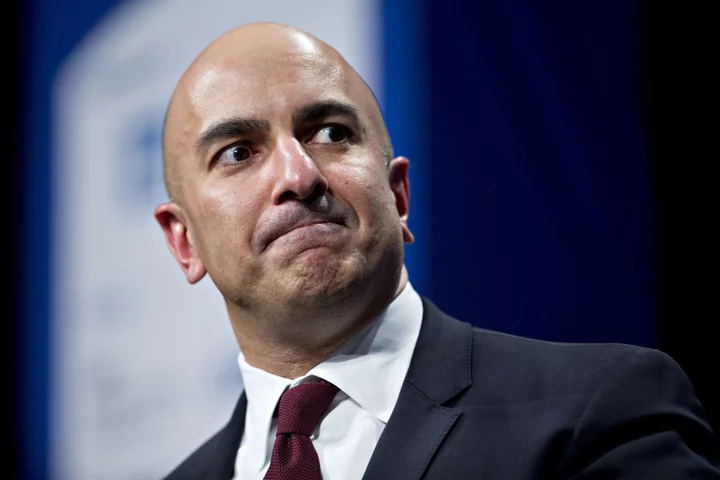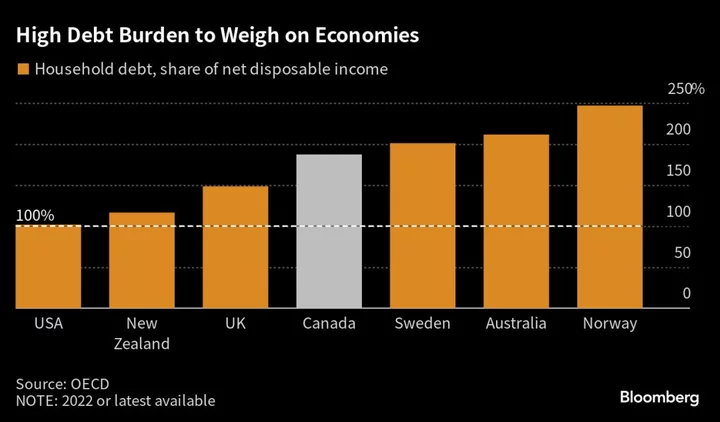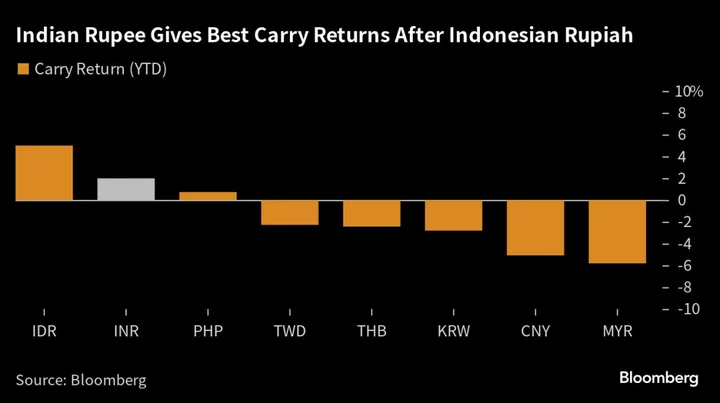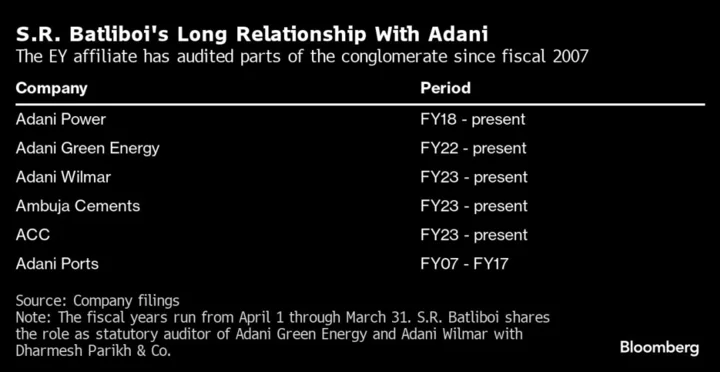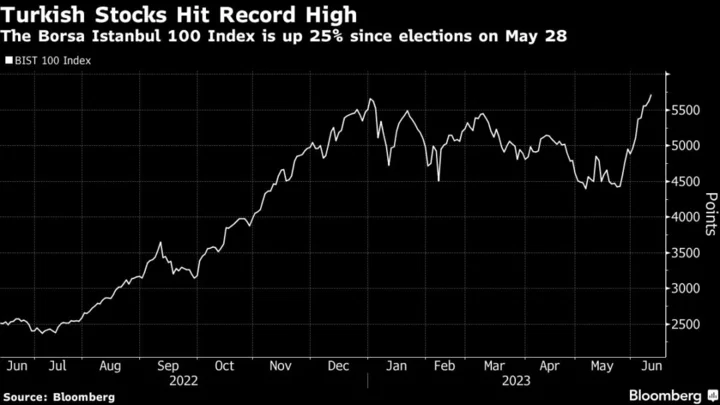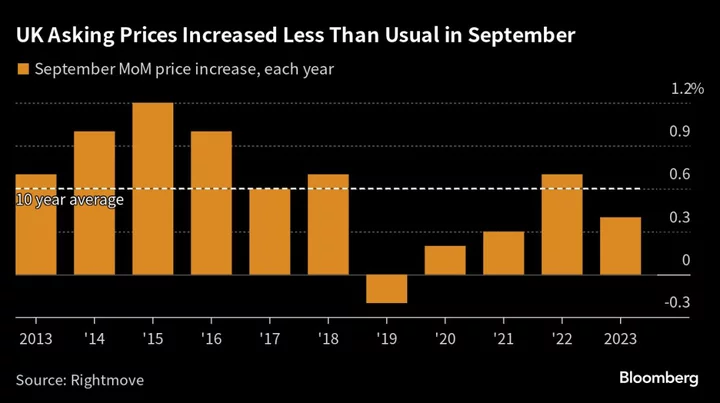The tension around the US debt-limit negotiations ratcheted up after Fitch Ratings warned the nation’s AAA rating was under threat from a political standoff that’s preventing a deal.
Fitch may downgrade its assessment to reflect the increased partisanship that is hindering a resolution despite the fast-approaching so-called X date, it said in a statement, referring to the point at which Washington runs out of cash. It moved the US to “rating watch negative” under its classification.
Markets have been showing increasing nervousness over the standoff, with rising premiums on Treasury bills maturing when the risk of default is highest while the S&P 500 Index has declined for two days. Economists project a US default could trigger a recession, with widespread job losses and a surge in borrowing costs.
Fitch’s warning “underscores the need for swift bipartisan action by Congress to raise or suspend the debt limit and avoid a manufactured crisis for our economy,” said Lily Adams, a spokesperson from Treasury.
The cost of insuring US sovereign debt against default with derivatives has risen, and Fitch’s statement also casts the spotlight on other rating agencies to see how they might react. A White House spokesperson said the report demonstrated the urgency of reaching a speedy resolution.
“The worst‑case scenario would be if the showdown leads to the government missing a debt payment for the first time, which might result in a widespread or lasting downgrade to the credit rating of US Treasuries,” said Nikolaj Schmidt, chief global economist at T. Rowe Price. “So many assets are priced in direct relation to US Treasuries that the turbulence from a more pronounced downgrade would be felt in markets worldwide.”
In 2011, S&P Global Ratings drew fire for downgrading the US from AAA after a similar brush with default. PGIM Fixed Income though says the US will find itself in a similar impasse all over again, and has has bought long-dated credit default swaps on that basis.
Strategists at JPMorgan Chase & Co. and Morgan Stanley have warned that an impasse threatens the outlook for equity markets, while traders have also piled into swaps and options for major currencies to hedge their portfolios.
The yen, a traditional haven currency, spiked as traders reacted to the news before reversing gains. Benchmark Treasury yields fluctuated in a tight range in Asia trading Thursday.
Read: Prior Debt-Ceiling Standoff Saw Treasuries, Gold Rise After Deal
Still, it’s not unusual for Congress to strike deals at the last minute when the pressure becomes big enough to force negotiators to make painful choices.
“We believe risks have risen that the debt limit will not be raised or suspended before the X-date and consequently that the government could begin to miss payments on some of its obligations,” Fitch said. “Prioritization of debt securities over other due payments after the X-date would avoid a default.”
The company said it still expected a resolution. Failure leading to a debt default would however lead Fitch to cut affected debt securities to a ‘D’ rating, with others downgraded to ‘CCC’ and ‘C’.
Debt-Ceiling Anxiety Tracker: T-Bill Yields Top 7%, Fear Spreads
House Speaker Kevin McCarthy expressed optimism Wednesday that White House and GOP negotiators would reach a deal in time to avert a potentially catastrophic default.
The California Republican’s comments came after a four-hour meeting between his and President Joe Biden’s hand-picked negotiators, fueling optimism Congress will act before June 1, the date by which Treasury Secretary Janet Yellen has warned the US could run out of money to pay its bills.
Moody’s Investors Service’s William Foster, a senior credit officer, said in an interview last week that he was “hearing the right things out of Washington,” and his firm has kept the US’s top rating intact through the fitful negotiations since.
S&P has retained a stable outlook on the rating during the latest fracas, anticipating a deal will be struck.
The Fitch warning is “certainly very symbolic, and in a way it may force Moody’s to follow suit,” said Vishnu Varathan, head of economics and strategy at Mizuho Bank Ltd. in Singapore. “It will also place more scrutiny on the dollar and Treasuries as havens and its risk-free rate qualities.”
--With assistance from Margaret Collins, Michael Mackenzie and Matthew Burgess.
(Updates with Treasury response and investor comment. The story was previously corrected for when a Moody’s executive spoke.)


